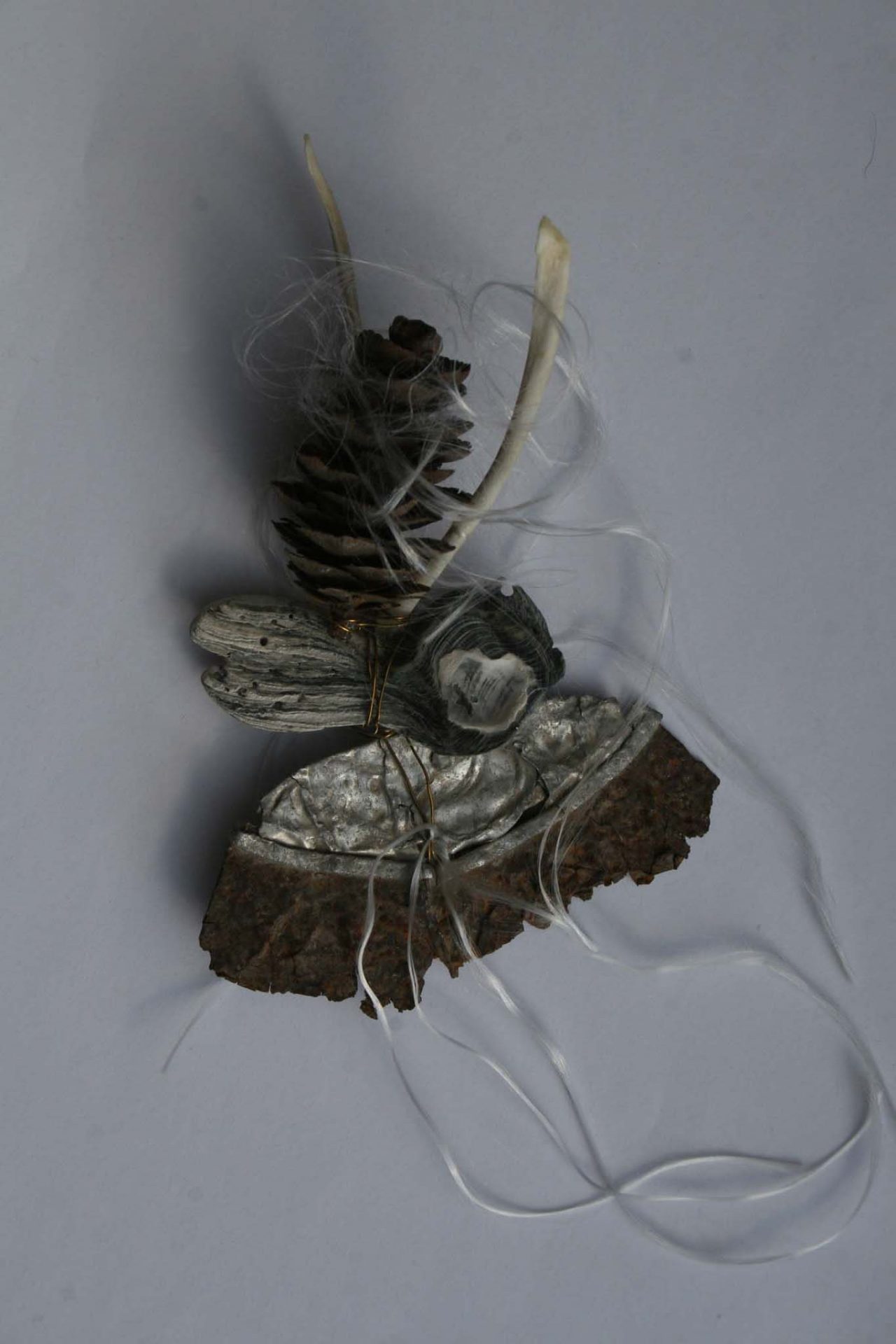The Power of the Environment and Creativity
The first thing I thought of when I began to speak to the group about my work was about my Grandmother and how nurturing she was, especially in encouraging me to learn from creative interactions with the natural environment. I realised that most of the objects that I chose to create my piece of work were reminiscent of the country of my birth, Canada.
I value the organic nature of creativity. The wishbone is symbolic of the structure of my wishes for developing my own creativity and the introduction of some creative practice within the 7 week mental health block for undergraduate medical students which I help to facilitate.
The pine cone, shell and metal all have been or are affected by their interaction with the environment.
The pine cone responds to changes in the weather and opens and closes depending on humidity levels. This response is indicative of the political climate in which we currently practice and the impact politics have on the delivery of health education and clinical practice.
Over time the visual appearance of the shell and metal has weathered and changed much like myself. There is a real sense of resilience in how both of these have responded to environmental change. The copper wire that binds them all has strength but is also flexible responding to temperature changes. The wire expands and contracts but maintains a resilience that is indicative of the human spirit.
The threads are representative of my hopes and dreams, some mere wisps of ideas and others more robust and possible of exciting new developments personally and in clinical practice.
Many of the elements that make up this piece are either recycled or found objects. These represent things we may disregard that are important and/or beautiful to others.
The experience of participating in this workshop was personally very powerful as it reminded me of the power of engaging in creative processes and how reflecting on this has therapeutic value in helping us to make sense of the unseen.
As an occupational therapist I continually acknowledge the importance of the environment and how it impacts on peoples everyday occupations and overall wellbeing.

0 Comments